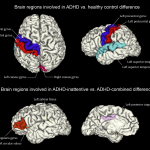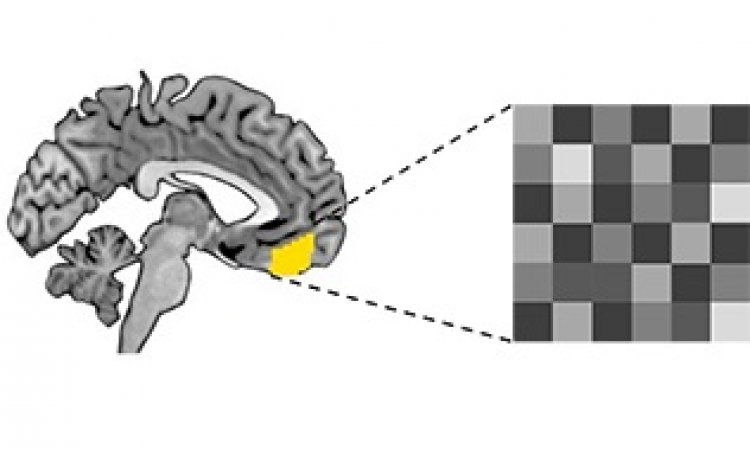Source: Shutterstock/optimarc
Article • Chronic peripheral inflammation and schizophrenia
The network approach to mental illness research
We spoke with Dr Guillaume Fond, lead author of an exciting new paper* that explores the association between chronic peripheral inflammation and poor response to treatment in schizophrenia patients.
Report: Jane MacDougall
As European health services are pressured to provide the best possible care for best possible value, some medical fields are now very much the poor relation; this is particularly true for mental health. Mental illnesses represent a great health burden and cause huge financial and societal pressure in terms of direct and indirect costs from repeated hospitalisation and treatment failures, while funding for research directed to improve diagnosis and treatment into these disorders is lacking.

To help rectify this problem and tackle the heterogeneity of available care and lack of organisation in the field, in 2007 the FACE network (FondaMental Academic Centres of Expertise) was set-up, with funding from the French Ministry of Health. Encompassing 39 different expert clinical centres throughout France, the network has created an original and innovative model to treat patients with mental disorders. By integrating clinical research into the patient’s routine care, they have created a huge cohort of motivated individuals living with mental illnesses within society, but with closely monitored and carefully coordinated medical support.
This allows observed findings to directly guide treatment changes in a way that circumvents the normal downtime required for adjustments to guidelines to be made and paradigm thinking to shift before new medical ideas and concepts are adopted.
Concentrating on four disease areas: schizophrenia, bipolar disorder, treatment-resistant depression and high-level autism, in a multidisciplinary environment, the network provides newly referred patients with a two-day assessment, leading to a complete treatment plan tailored to their and the families’ needs. A comprehensive report, plus details of prescribed medication, psychotherapy and suggested lifestyle changes are sent to the patient’s own psychiatrist or general practitioner (GP) while additional annual follow-up with the expert centre’s psychiatrists is proposed.
This latest scientific publication from the network comes from drawing on their cohort of schizophrenic patients and comparing them with the sub-population of patients within it (~10%), who develop ultra-resistance to psychotic medication (ultra-resistance to treatment in schizophrenia [URTS]). These patients are defined in the paper as demonstrating symptoms with a score greater or equal to 70 on the Positive and Negative Syndrome scale for Schizophrenia (PANSS) despite being treatment compliant.
Recommended article

Article • Brain MRI-mining
The birth of psychoradiology
The emerging field of psychoradiology is taking a major step ahead. A new study highlights MRI’s role in identifying people with attention deficit and hyperactivity disorder (ADHD) and classifies subtypes of the condition, a leading Chinese researcher explained at the ESMRMB annual meeting.
Blood tests revealed that these patients had elevated levels of highly sensitive C-reactive protein (hsCRP), which was independently associated with chronic peripheral inflammation (OR = 2.6 [1.2–5.7], p = 0.01). Confirming results from other studies in which increases in inflammatory biomarkers have been associated with poorer outcomes and treatment response in schizophrenia. Inflammatory blood markers have also been suggested to be predictive for treatment response to antipsychotics and high levels of CRP have been associated with cognitive impairment in both schizophrenia and Alzheimer’s disease.
The mechanism whereby inflammation causes treatment resistance is as yet unknown. It may be speculated that chronic low-grade inflammation at the level of organs. such as the liver and pancreas, might alter drug absorption and/or metabolism, diffusion through membranes (blood/brain barrier) might also be compromised and possibly there is a more direct effect, on the brain receptors themselves, which has been postulated for Alzheimer’s disease. Therefore, should schizophrenics be prescribed complementary anti-inflammatory treatment?
Presently, Fond suggests patients should be actively encouraged to reduce inflammation by lifestyle changes, such as taking more exercise, having a healthy diet with plenty of vegetables and increasing their intake of vitamin D and omega 3. In this way the patient’s general physical health and wellbeing will improve, which can only be positive for their mental health.
* Fond G et al. Chronic low-grade peripheral inflammation is associated with ultra-resistant schizophrenia. Results from the FACE-SZ cohort. Eur Arch Psychiatry Clin Neurosci. 2018 May 28. doi: 10.1007/s00406-018-0908-0. [Epub ahead of print] PMID: 29808267 FACE-SZ details: www.fondation-fondamental.org/
Profile:
Dr Guillaume Fond is associate professor, psychiatrist and coordinator of the national Schizophrenia Expert Centre Network and local head of the Resistant Depression and Schizophrenia Expert Centre, Marseille, France. He is affiliated with the AP-HM medical information department, researcher at the Group EA 3279: CEReSS – Health Service Research and Quality of Life Centre and Lecturer at the University Aix-Marseille-La Timone. Fond has coordinated the national Schizophrenia Expert Centre Network since November 2012.
18.12.2018










